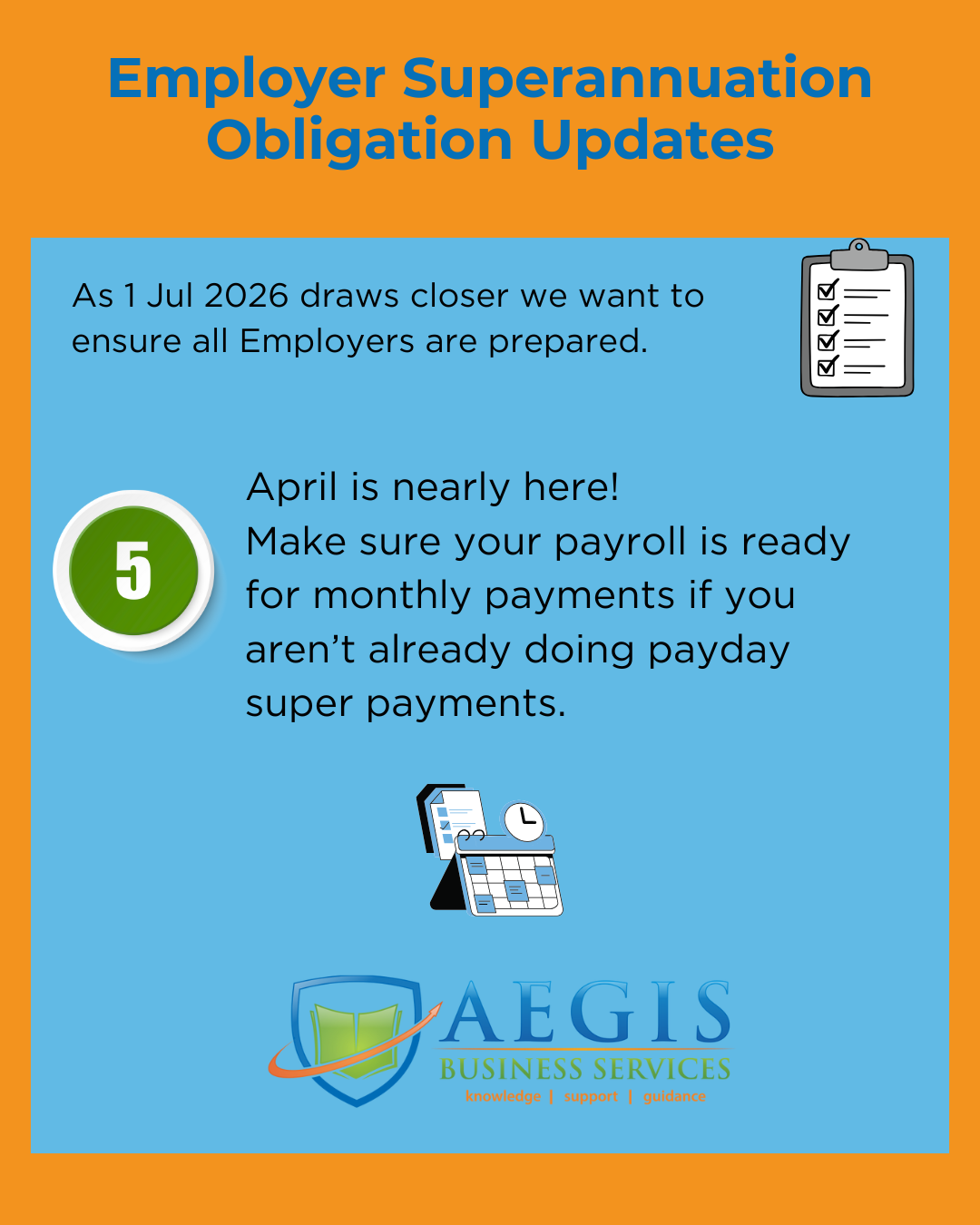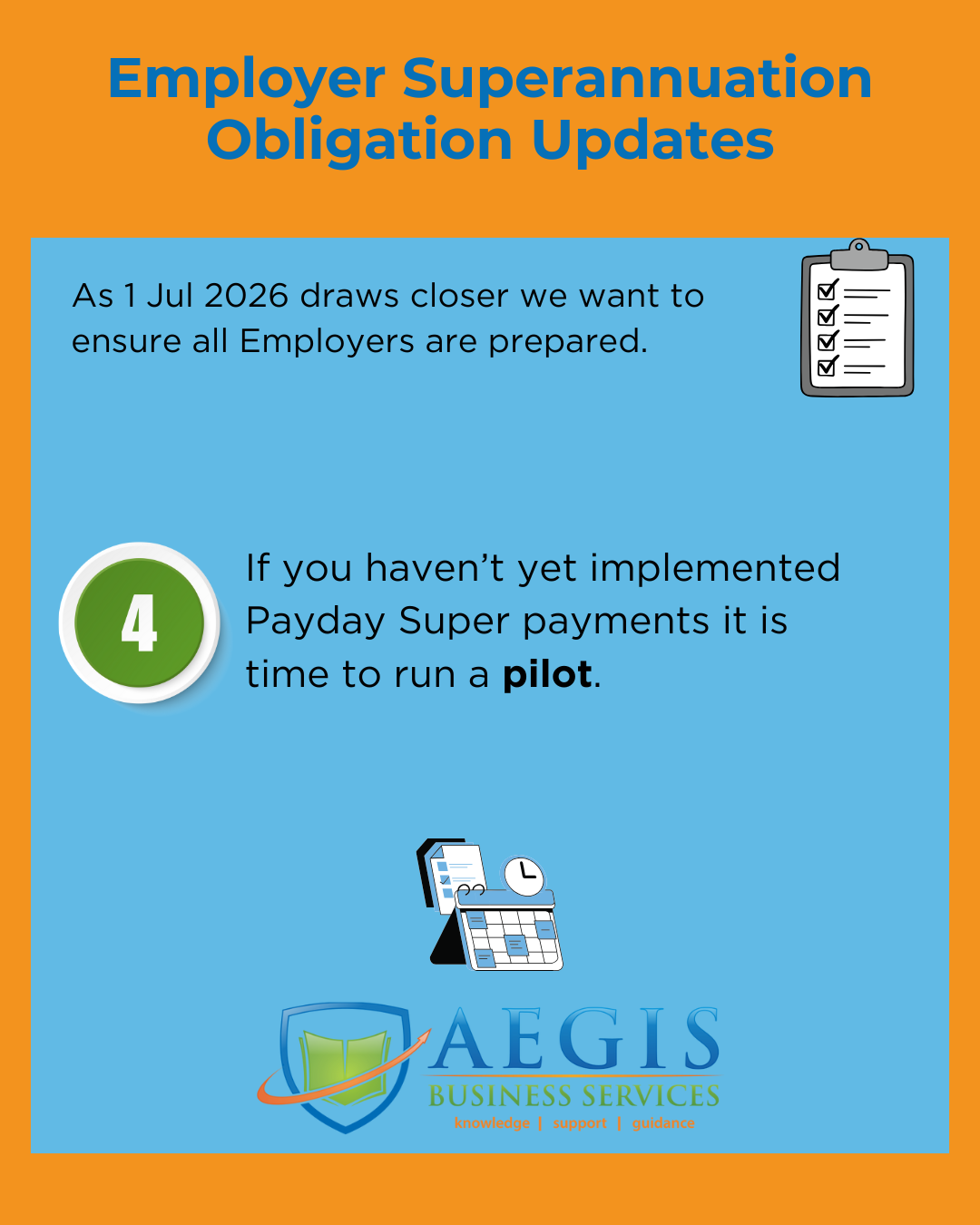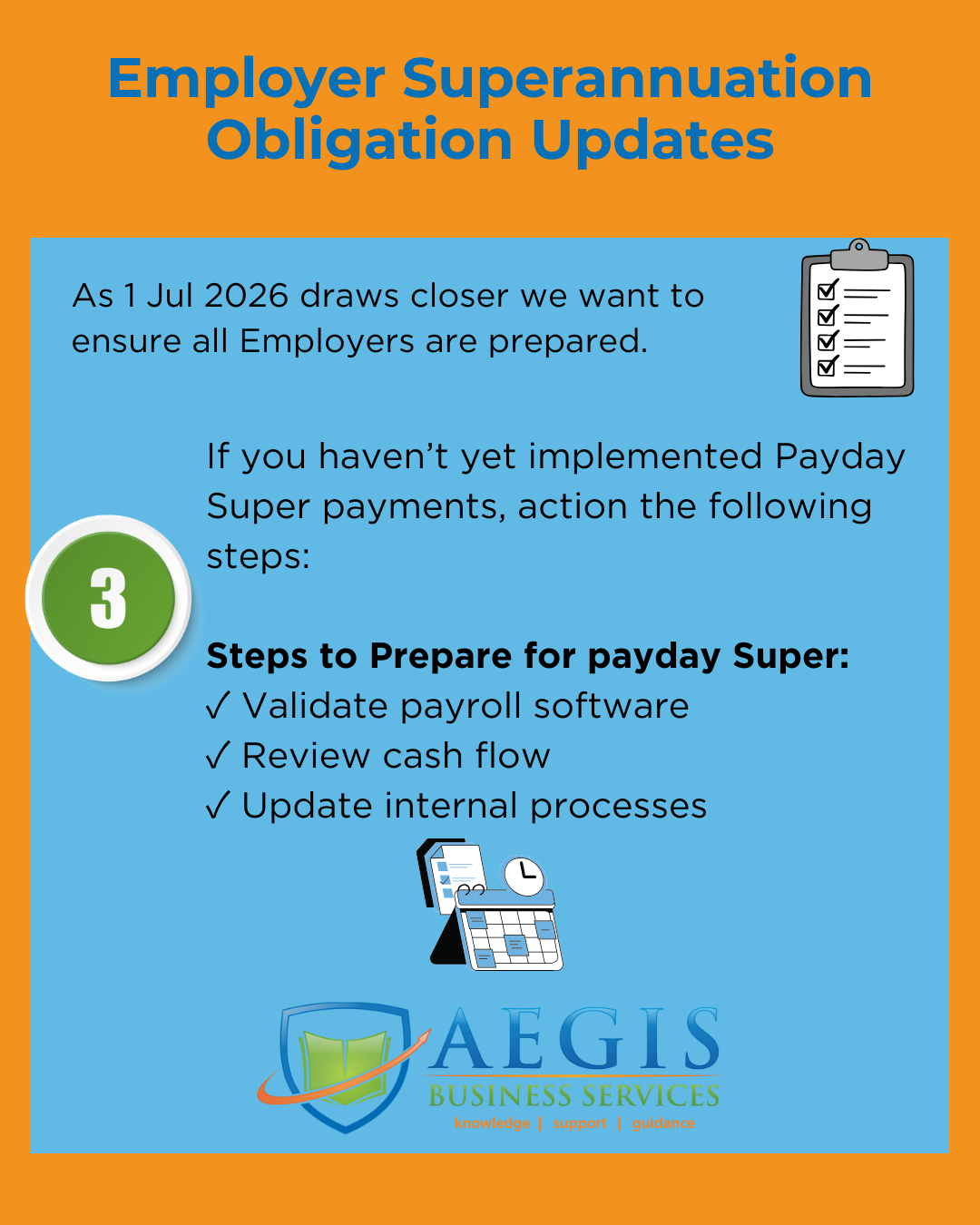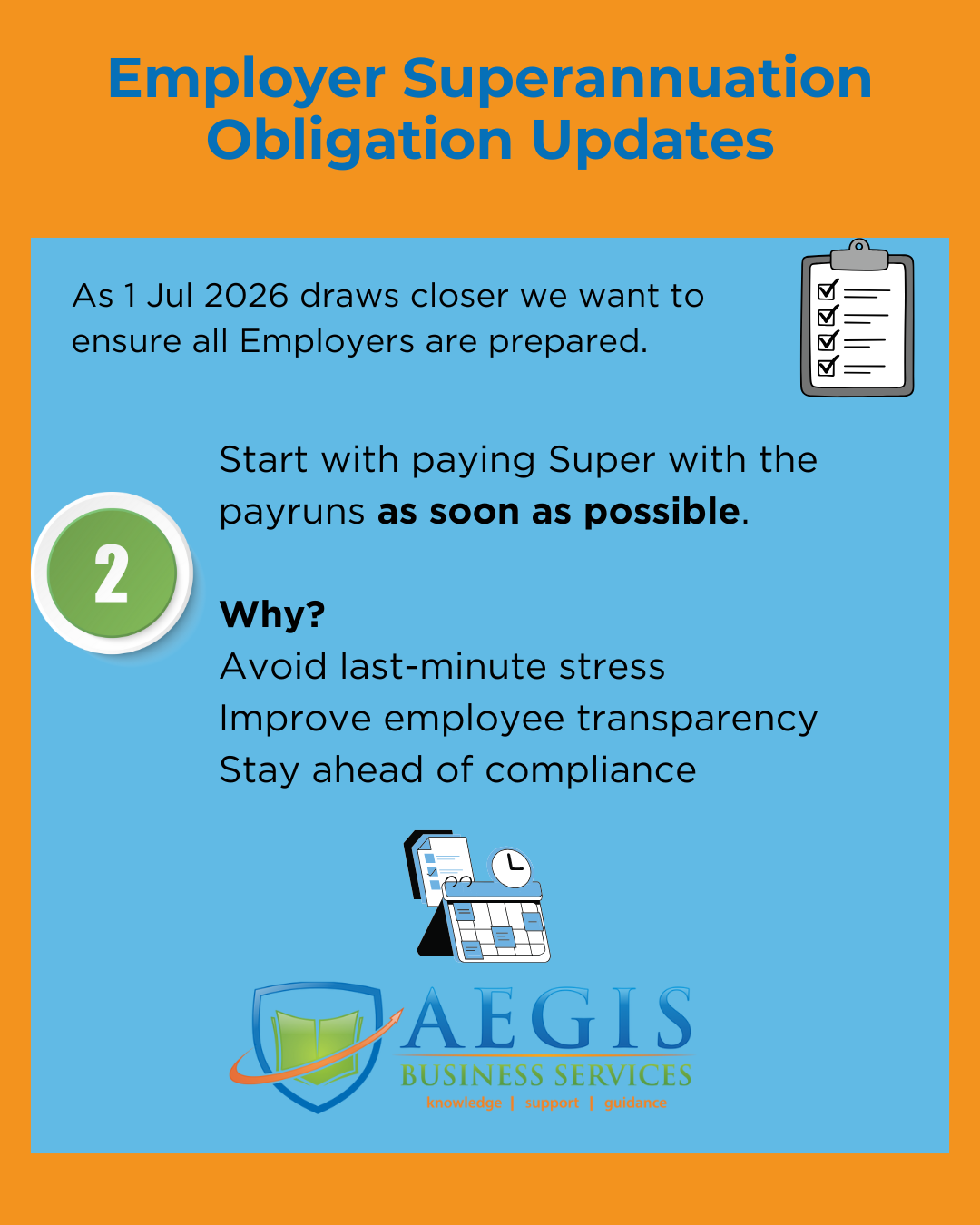Confused About the July 2025 Wages and Super Changes? Here's What You Need to Know
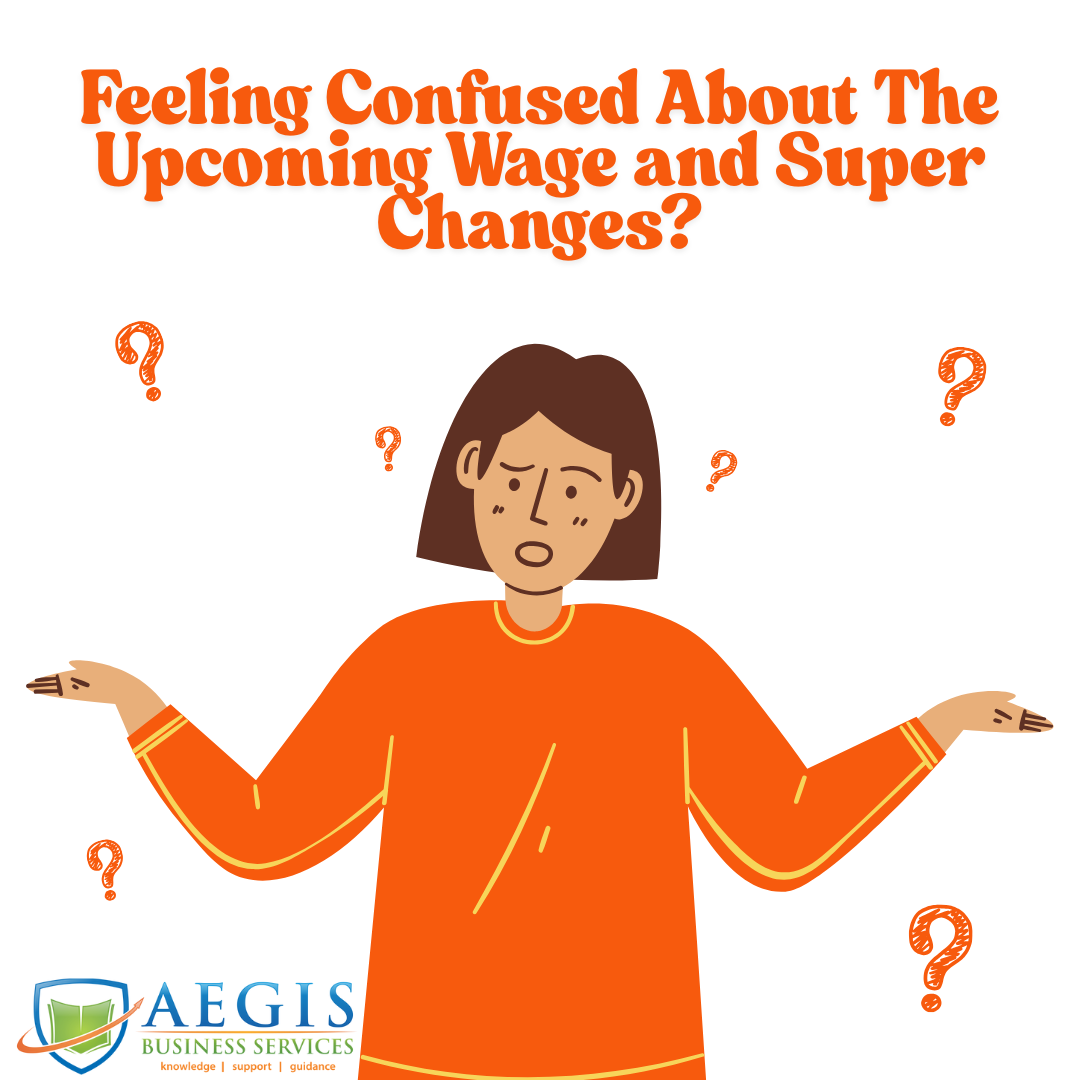
The start of the 2026 financial year brings several important changes: an increase in the superannuation guarantee rate, a rise in the
national minimum wage, and updated award rates. But when exactly do these changes apply?
It can get confusing—especially if your pay period crosses over the end of the financial year. We’ve seen a lot of questions (and
misinformation) in business forums and social media. So, let’s break it down clearly.
What’s Changing:
- Superannuation Guarantee increases to 12%
- National minimum wage and award rates increase by 3.5%
- What happens when your pay week crosses financial years
- Can you pay wages early to shift them into a different financial year?
1. Superannuation Guarantee Increases to 12%
From 1 July 2025, the superannuation guarantee rate increases to 12% of ordinary time earnings (OTE).
✅ Important: The new rate applies based on the payment date, not the dates the work was performed.
Example:
If your pay period runs from Monday 23 June to Sunday 29 June 2025, and you pay wages on Tuesday 1 July 2025, the 12% rate applies—even
though the work was done in the previous financial year.
💡 Tip: Make sure super payments are made through an electronic clearing house in time for the funds to
reach employees’ super accounts by 28 July. Late payments can’t be claimed as a tax deduction and may attract penalties—even if paid just
one day late.
2. Minimum Wage and Award Rate Increases
From 1 July 2025, the national minimum wage and award rates increase by 3.5%. This brings the minimum wage to $24.95 per hour or $948 per week for full-time employees.
However, the increase only applies from the first full pay period starting on or after 1 July 2025.
Example:
If your pay period runs from Monday 30 June to Sunday 6 July, the old rates still apply.
The new rates apply from the next full pay period—Monday 7 July to Sunday 13 July, paid on Tuesday 15 July.
📝 Note: This is different from superannuation, which is based on the payment date.
3. Pay Periods That Cross Financial Years
Do you need to split the pay for PAYG withholding, super, or award rates if your pay week crosses 30 June?
No.
- Super is based on the payment date.
- Award rate increases apply from the first full pay period in the new financial year.
For accounting purposes, you might choose to accrue or apportion wages based on when the work was done. But for payroll processing, STP
reporting, and EOFY finalisation, treat the pay period as a whole.
4. Can I Pay Wages Early to Shift Them Into a Different Financial Year?
It’s best to stick to your regular pay cycle.
Paying wages early (or recording them as paid early) can shift them into a different financial year, which may negatively impact your employees. This could:
- Push them into a higher tax bracket
- Affect Centrelink or Family Tax Benefit entitlements
- Trigger unexpected HECS/HELP repayments
- Impact child support or Medicare Levy Surcharge obligations
If your goal is to increase deductions this year, consider accruing the wages instead.
Final Thoughts
Payroll is important—and getting it right at EOFY is critical. Even small changes can have a big impact on your team, especially those living pay-to-pay.
If you’re unsure or need help, our expert bookkeeping team is here to support you.
📞 Call us on (07) 3207 1030

